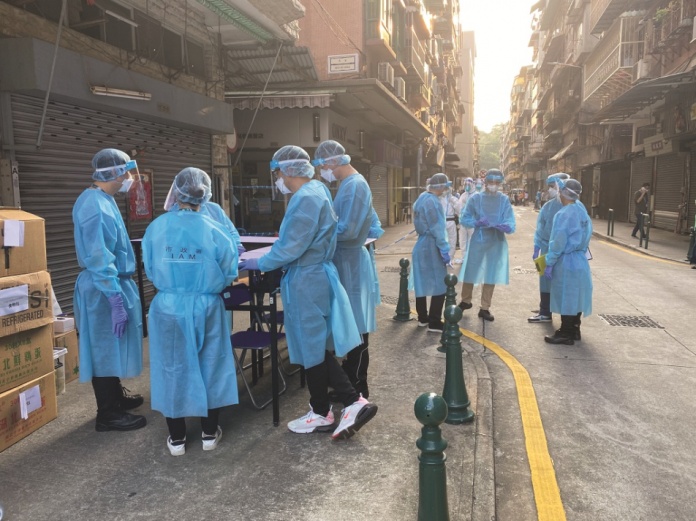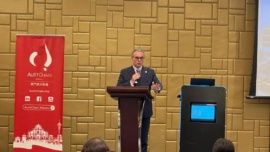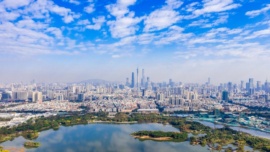Drums grow louder for a new round of financial support for businesses and employees in light of the latest local Covid-19 cases in late September while the authorities are also urged to think of anti-epidemic measures that cause less disruptions to normal economic activities when there are new cases in the future.
Chief Executive Ho Iat Seng called on local businesses in June last year to be persistent and “walk the last mile” of the city’s efforts to overcome the coronavirus outbreak. Two months later, upon the resumption of the visa issuance for Mainland Chinese to visit the city, a signal for the local tourism-and-gaming-reliant economy to bottom out, the top official noted at the time, “The last mile has just begun.”
This last mile, however, seems to last forever in the perspective of local businesses and the general public, as the Covid-19 pandemic hangs on and continues to batter the territory’s economic recovery.
Following the recuperation from sporadic coronavirus cases in nearby Guangdong province in June and four infection cases reported in the local community in August, Macau was poised to embrace the influx of travelers from Mainland China in the seven-day National Day holiday starting from October 1st. Some predicted the daily visitor tally could exceed 40,000. That number puts this period of time in line to be the city’s best tourism performance since the start of the unprecedented global health crisis in early 2020.
But a new outbreak among at least six security guards of the Golden Crown China Hotel and Treasure Hotel in late September linking to an imported Delta-variant case has dashed hopes while the largely normal travel arrangements between Macau and Zhuhai, Guangdong have temporarily halted. The land border terminals between Zhuhai and Macau are the main gateways for Mainland Chinese to visit Macau.
“We had expected the National Day Golden Week would even fare out better than the May 1 Labor Day holiday, whose visitation daily averaged some 30,000,” says Andy Wu Keng Kuong, chairperson of the Macau Travel Industry Council in referring to some of the major holiday seasons for Mainland Chinese. “We had originally been hopeful … but this latest disruption is devastating as it might take weeks for the restrictions to be lifted.”
Zhuhai has mandated all the arrivals from Macau to undergo a 14-day mandatory quarantine since late September, and that mandate had still been in effect by the time when this magazine went to press. The daily visitation tally immediately plunged to about 1,000 in late September compared to some 10,000 and some 20,000 before the latest restrictions.
The tourism sector now looks beyond this year for substantial improvements to be seen, namely the Chinese New Year break, falling on February 1st in 2022. “We are not particularly bright towards the tourism sector for the remainder of the year because there are no traditional holiday seasons for the mainlanders — the daily tally might average just some 20,000 visitors,” Mr. Wu says, as the city so far only has quarantine-free travel arrangements with the mainland.
“The industry has simply been worn out with the ups and down in the past two years,” he says. “And we just don’t know how long this ‘last mile’ will last.”
“We are not particularly bright towards the tourism sector for the remainder of the year because there are no traditional holiday seasons for the mainlanders — the daily tally might average just some 20,000 visitors,” says Andy Wu, chairperson of the Macau Travel Industry Council
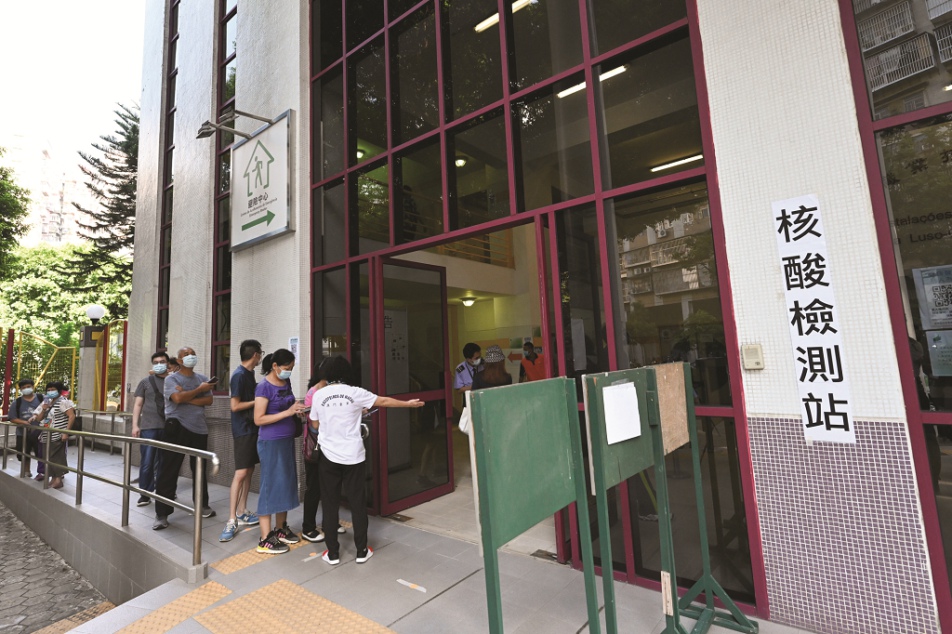
No blanket measures
Latest official data show Macau received nearly 5.13 million travelers in the first eight months of 2021, increasing 43.6 per cent from the same period in 2020 but still only translating to just nearly 20.5 per cent of the pre-pandemic volume. The visitors’ arrivals in August declined by over 48 per cent from the previous month to just 409,207, or 13,200 travelers a day, underscoring the turmoil caused by the temporary travel restrictions over the four new cases in the same month.
Another veteran industry figure, Wong Fai, also concurs that the tourism market would only “hopefully” see an improvement next year as the performance in the remainder of the year would be stagnant. “The latest infection cases dealt a huge blow to the sector… which had high hopes for the National Day Golden Week,” says Mr. Wong, who is also the director of the Macau Travel Industry Council.
The local authorities should be in talks with their counterparts in the mainland for non-blanket travel measures that help minimize the risks of the spread of Covid-19 and ensure the normal operation of the society. For instance, the travel restrictions do not need to apply to the entire city but only the “red zone” or “yellow zone” districts. “Should the rigid travel restrictions be immediately imposed for all whenever there is a local case — whether it is import-related or [with unknown sources] — and only be lifted at least weeks later, this will severely cause disruptions to the local economic activities,” Mr. Wong adds.
Nonetheless, it might not be a smooth path for the authorities from the two sides to see eye-to-eye on the anti-epidemic measures and travel arrangements. The Macau government was in several talks with the Guangdong provincial government and the Zhuhai municipal authorities for the quarantine requirement to be dropped before the National Day, but Guangdong declined to entertain the request.
“Should the rigid travel restrictions be immediately imposed for all whenever there is a local case — whether it is import-related or [with unknown sources] — and only be lifted at least weeks later, this will severely cause disruptions to the local economic activities,” tourism industry figure Wong Fai remarks
More support
With two new waves of cases in the second half of this year and the subsequent travel restrictions, the stable path of the local economic recovery has been derailed. Right before these latest alerts, the gross domestic product (GDP) of Macau surged 69.5 per cent year-on-year in real terms in the second quarter of 2021, following an unprecedented contraction of 56.3 per cent in 2020.
Figures across the pro-establishment camp have stepped forward to urge the authorities for a new round of financial support amid the bleak prospect, including representatives from the Women’s General Association of Macau, the Macau Jiangmen Communal Society, the prominent Fujian community, and the Macau General Union of Neighborhood Associations. Academic Lao Pun Lap, who was the former head of a government think tank, has told reporters lately “the calls for more financial support have grown louder in the community” and the government should actively assess the situation.
“There are still so many hurdles for the local economic recovery due to the fluctuations of the pandemic, and many local enterprises — particularly small-and medium-sized enterprises — and workers are struggling,” says legislator Ella Lei Cheng I from the Macau Federation of Trade Unions, the city’s largest labour group. “Some local businesses exhorted all their means to cut costs and shrink their business scale to stay afloat, leading to residents losing their jobs or suffering from no-paid leave.”
The lawmaker proposes the government should launch a new round of financial support, for instance, e-consumption vouchers worth MOP8,000 again for each resident to “relieve the financial burdens of the residents and spike domestic demand to support local SMEs”. A statement from the Economic and Technological Development Bureau in September said the latest and third round of e-consumption voucher scheme — granting residents MOP8,000 each to spend between June and December — has injected MOP3.78 billion into the local economy.
Since the start of the pandemic the authorities have pushed forward three rounds of measures to stabilise the local economy, including two rounds last year and an additional phase in 2021. Besides the e-consumption vouchers, the measures rolled out in the past two years cover one-off financial subsidies for workers and businesses, waiving water and electricity bills for three months, tax breaks and others. The administration has estimated about MOP100 billion were spent in the past two years in the efforts against the Covid-19 outbreak, including the financial support.
“Given the fluctuations of the pandemic, it’s difficult to foresee whether there will be more local cases in the future,” says Ms. Lei. “The government should continue optimising the anti-epidemic measures while also coming up with a mechanism to subsidise residents and businesses that are forced to be temporarily closed or take leave like those in the yellow or red zone areas.”
All the entertainment and leisure venues except casinos, such as gyms, cinemas, bars, nightclubs, karaoke lounges, massage parlours and beauty salons, were also forced to close down for two weeks in August in the wake of four new cases in the community, but they could remain business as usual during the latest outbreak in September.
“There are still so many hurdles for the local economic recovery due to the fluctuations of the pandemic, and many local enterprises — particularly small- and medium-sized enterprises — and workers are struggling,” says legislator Ella Lei
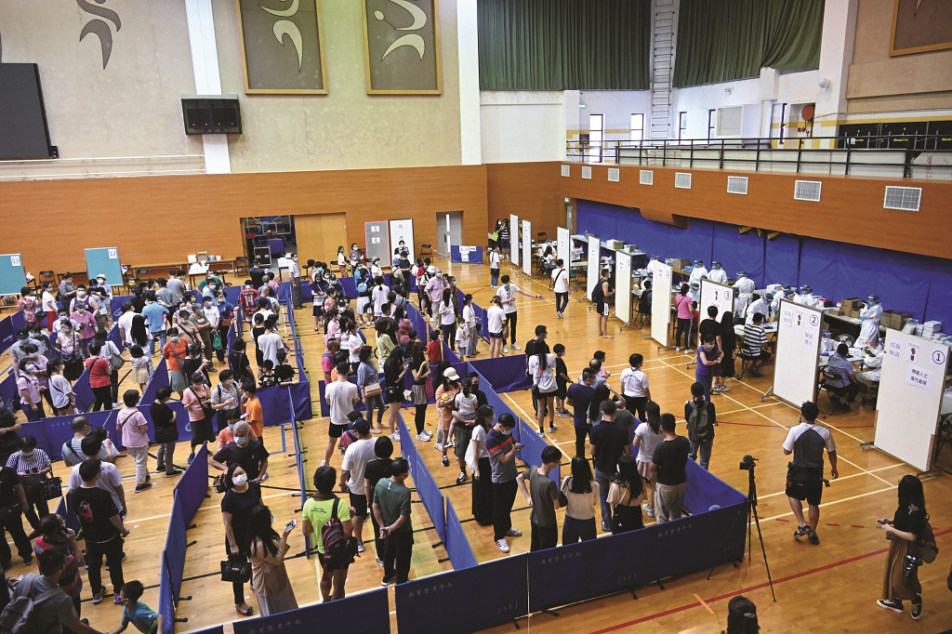
Dilemma
Representatives of three business chambers — the Industry and Commerce Associations of Central and Southern District, Northern District, and Islands of Macau — have visited the merchants in the respective districts to assess their latest situation and demands in light of the September outbreak. “Many of them have reflected they are subject to immense pressure — it’s difficult to sustain their operations in this business climate, but it’s also not that simple to dissolve the business as they still have loans to settle and repay,” says Lei Cheok Kuan, chairperson of the Industry and Commerce Federation of Central and Southern District of Macau. At least 20 per cent of shops in the vicinity of Ruins of St. Paul’s in the downtown district have been closed, he estimated.
“The authorities should table a new round of financial support as soon as possible to encourage local SMEs to keep going,” he says, adding that the government, for example, could waive the water and electricity bills for businesses for a few months or encourage landlords to lower rents for merchants by offering a tax break for the former on their properties.
Secretary for Economy and Finance, Lei Wai Nong, has recently commented that they “are evaluating the situation of the SMEs” and will submit suggestions to the chief executive as soon as possible but has kept mum over whether and what measures would be put forward. Mr. Lei added there would be ups and downs along the path of the city’s economic recovery, and there might be more setbacks in the future.
Meanwhile, Chief Executive Ho Iat Seng has also emphasised on two public occasions after the late September cases that the government “has not closed the door” for the possibilities of another round of financial support. But he added the public coffers have to be cautiously utilised as the pandemic might persist for an indefinite time period. The city’s fiscal reserve still totalled about MOP650.8 billion as of this July, the latest official figures show.
“Many of them [local merchants] have reflected they are subject to immense pressure — it’s difficult to sustain their operations in this business climate, but it’s also not that simple to dissolve the business as they still have loans to settle and repay,” says Lei Cheok Kuan from a local business chamber
Silver lining?
Amid the latest series of gloomy and negative news there might be something about which the local community, particularly the business sector, can still remain hopeful. Guangdong announced in late September that mainland Chinese from Guangdong could start to apply for business visas to visit Hong Kong on 11 October, signalling the start of the resumption of normal travel traffic between the two sides. The nearby SAR has launched a Come2hk scheme since September, offering quarantine-free entry for up to 2,000 visitors from the mainland and Macau, but the quota for Macau has been suspended given the new cases in the gambling enclave in the later days of the same month.
On the other hand, Macau has maintained since the start of the pandemic the same measures, indicating that any arrivals from Hong Kong — the gambling enclave’s second-largest feeder market that accounts for about 20 per cent of the visitors’ arrivals — have to undergo a mandatory quarantine. The Macau officials have reiterated several times that the restrictions with Hong Kong could be eased since the mainland has done so with Hong Kong.
“This is a [sic] positive news,” says Mr. Wu from the Macau Travel Industry Council about the business visas from Guangdong to Hong Kong. “We hope this means the normal travels between Macau and Hong Kong could resume soon, such as [at] the end of October, which will be a boost to the lacklustre tourism market.”





